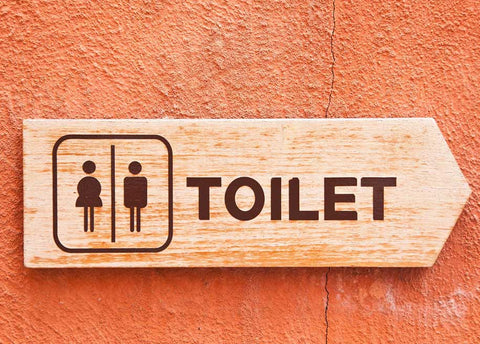World Toilet Day

Table of Contents
Being able to use the toilet at home whenever you need to: what we take for granted is an exception rather than a rule for many other people.
According to the latest UNESCO World Water Report, 2 billion people lacked access to a safe drinking water supply in 2020 and around 3.6 billion had no access to sanitary facilities. (Source: www.unesco.de) This corresponds to more than a quarter and almost half of the entire world population. World Toilet Day was launched on November 19, 2001, to raise awareness of precisely these problems.
Objectives of World Toilet Day

World Toilet Day was initiated by the World Toilet Organization to draw attention to the serious global challenges in the area of sanitation and to promote the finding of solutions.
World Toilet Day aims to raise awareness of the importance of sanitation. The option of being able to use a toilet at any time not only helps to maintain health, but also protects people's dignity and improves their quality of life.
World Toilet Day aims to strengthen global efforts to improve sanitary conditions and encourage governments, organizations and civil society to take action.
Global challenges: Lack of access to water and sanitation

The global challenge of lack of access to water and sanitation is one of the most pressing problems of our time.
For many people, the lack of sanitary facilities is more than just an inconvenience. It poses a significant risk to their health. A lack of toilets increases the risk of disease, particularly through contaminated water and unsanitary conditions.
This challenge is not limited to a specific region, but affects people in developing countries as well as in urban slums. World Toilet Day draws attention to this global crisis and calls for solutions to be found together.
It is crucial that governments, international organizations, communities and individuals work together to improve access to water and sanitation and thus change the living conditions of millions of people worldwide.
What projects and initiatives are there to improve the situation?
There are numerous projects and initiatives at global, regional and local level that aim to improve access to water and sanitation. Some of the most prominent initiatives and organizations are
UN water and Sustainable Development Goals (SDGs):
The United Nations has defined access to clean water and sanitation as one of the Sustainable Development Goals (SDGs). Goal 6 is: "Clean water and sanitation for all". Numerous projects and programs are being implemented worldwide to achieve these goals.
World Toilet Organization (WTO):
The WTO, which launched World Toilet Day, is committed to improving sanitary conditions worldwide. The organization works to raise awareness, mobilize resources and promote innovative approaches to sanitation.
Water.org focuses on providing access to safe water and sanitation solutions in developing countries. The organization relies on micro-financed loans to enable communities to build toilets and gain access to clean water.
This initiative works to promote innovation and entrepreneurial solutions in the sanitation sector. It brings together governments, companies and organizations to promote sustainable sanitation practices.
Community-Led Total Sanitation (CLTS):
This approach aims to mobilize communities to work together to end open defecation (unprotected disposal of faeces). CLTS promotes the construction of toilets through awareness-raising measures at community level.
Global Sanitation Fund (GSF):
The GSF, managed by the Water Supply and Sanitation Collaborative Council (WSSCC), supports programs to improve sanitation in various countries, especially in poorer communities.
These projects and initiatives show that there are different approaches to improving access to water and sanitation. They rely on collaboration, innovation and sustainable solutions to bring about positive change on a global scale.
How can each individual help?

- Create awareness: Share information about WASH issues in your networks to create awareness and encourage dialog.
- Donate: Through donations, you can support organizations that are committed to WASH initiatives. Any amount helps to improve access to clean water and sanitation.
- Water and resource-conserving behavior: Make sure you use water and resources sparingly in your everyday life. Small changes in your own behavior contribute to sustainable development.
- Promote education: Support educational programs that raise awareness of WASH. Education is a key to long-term change.
- Local engagement: Get involved in local community projects that aim to improve access to clean water and sanitation.
Every individual can make a contribution to achieving the global WASH goals. Through conscious action, support for organizations and local commitment, together we can help to ensure that access to clean water and sanitation becomes a universal right and thus sustainably improve the living conditions of millions of people worldwide.
Conclusion: Anytime, when necessary, concerns us all!

The establishment of World Toilet Day illustrates that the lack of adequate sanitation is not only an individual problem, but also a collective one that urgently needs to be addressed. The aim is to create a platform that helps to draw attention to this fundamental human right and to promote concrete measures to improve sanitation worldwide.
World Toilet Day reminds us that access to toilets is not just a matter of convenience, but a crucial factor in promoting health, dignity and social progress worldwide.







Leave a comment